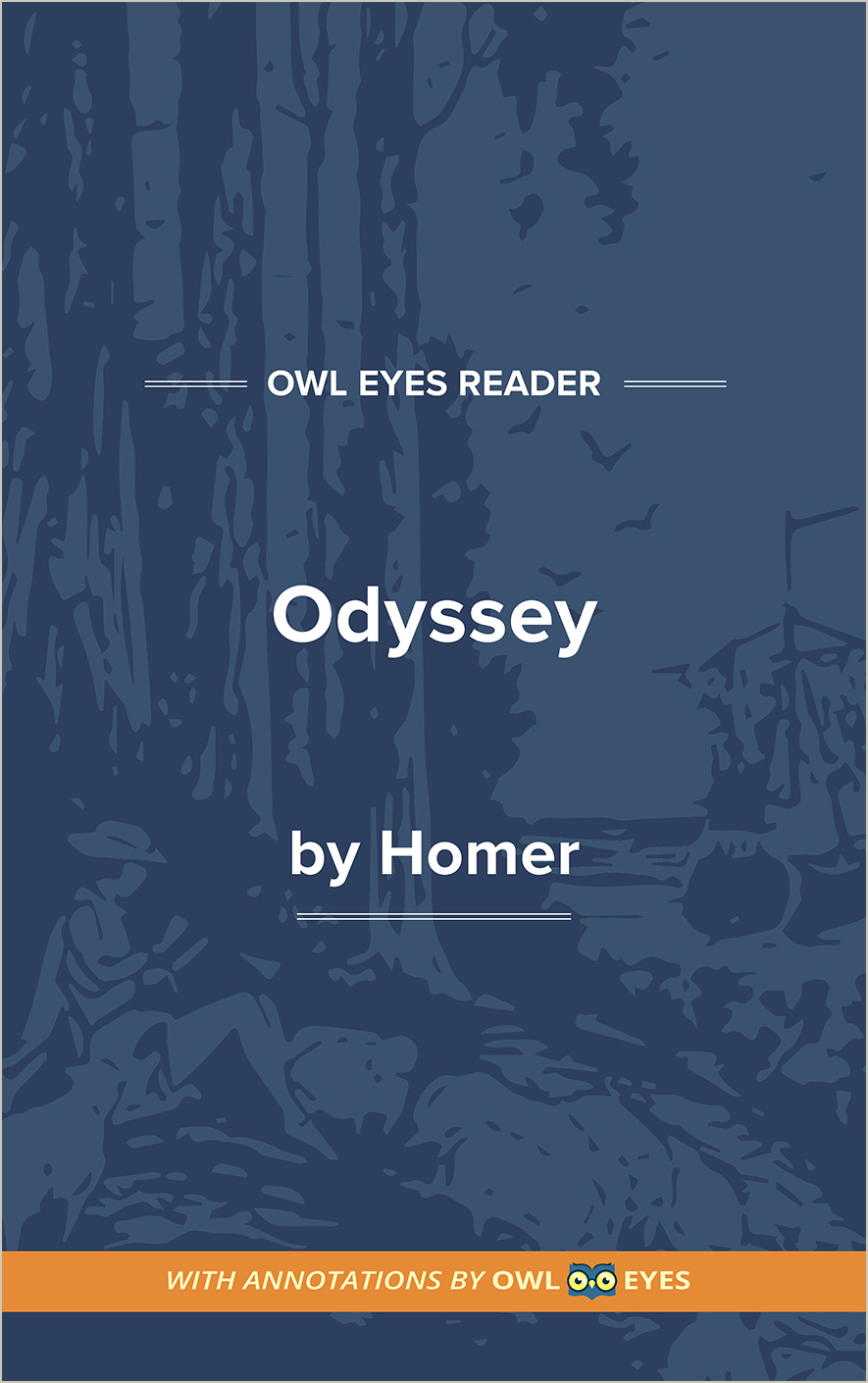Analysis Pages
Metaphor in The Odyssey
Metaphor Examples in The Odyssey:
Book V
🔒"for the clothes Calypso had given him weighed him down..." See in text (Book V)
Book X
🔒"poplars and willows that shed their fruit untimely..." See in text (Book X)
Book XI
🔒"a hard thing for the living to see..." See in text (Book XI)
Book XVII
🔒"come here with the victims..." See in text (Book XVII)
"the most heaven-taught minstrel..." See in text (Book XVII)
"by one of the bearing-posts..." See in text (Book XVII)
Book XIX
🔒"I grieving because the eagle had killed my geese..." See in text (Book XIX)
Book XX
🔒"over all the land..." See in text (Book XX)
Book XXII
🔒"maddened by the gadfly..." See in text (Book XXII)
"the straps had become unsewn..." See in text (Book XXII)
"kicked the stool with his feet..." See in text (Book XXII)
"and the vultures shall devour you..." See in text (Book XXII)
Book XXIV
🔒"Eperitus..." See in text (Book XXIV)
"Polypemon..." See in text (Book XXIV)

